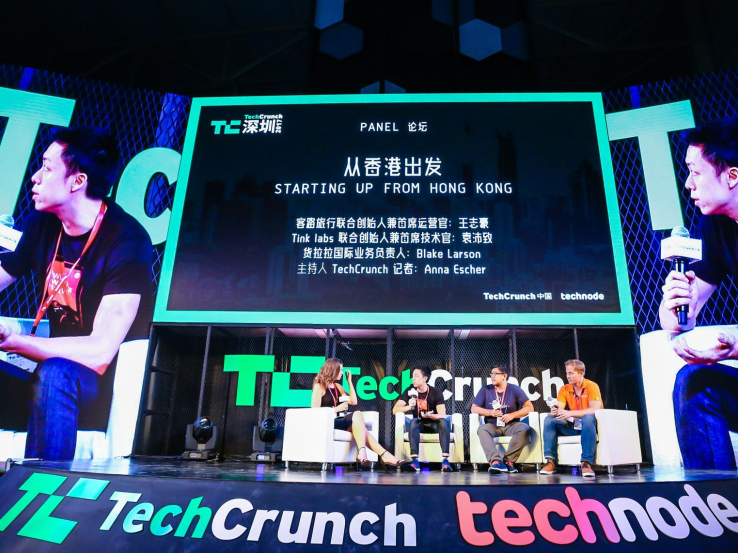
Hong Kong is one of the world’s premier financial hubs, but can it be a destination for tech startups? That was the question put to a panel of experts at the TechCrunch China event in Shenzhen today. The answer, largely, was yes but it may need a little time.
“Hong Kong is becoming a global innovation center, but it needs companies to look up to,” Blake Larsen, head of international at logistics on-demand startup Lalamove, told an audience at the event.
Larsen, whose company has raised more than $60 million from investors, argued that all signs point to a change in the mindset and ambition within the country, but it will take time for perceived ‘riskier’ career options to gain mainstream attention. Traditionally, banking and real-estate has been the primary choice of career for fresh graduates, who have pressure on landing a rewarding and established career to satisfy family and society. Added to that, here is no example of a tech company rising up to set an example for others to follow. Yet.
“Hong Kong still lacking a little bit, finance and real estate [have] dominant marketshare in the economy and the younger generation still have that mindset,” Eric Gnock Fah, co-founder of travel tech company Klook, which recently secured a $30 million financing round led by top-tier investor Sequoia
“But we also see increasing interest,” he added. “This summer we had 10 interns keen to learn more about the startup experience.”
A bump in internships is something Larsen has noticed at Lalamove, while Phil Yuen, CTO of Tink Labs, agreed that student interest in startups has never been higher.
“It’s a very good gauge. In the beginning [when Tink Labs started five years ago] there was barely an interest, but this year it has been significant. That’s a good sign of folks getting interested in startups,” Yuen said.
Yet, despite a surge in interesting, Hong Kong doesn’t have the size or scale of other countries, particularly China. With a population of just over seven million people, the panelists were united in agreement that bordering Shenzhen — the so-called hardware capital of the world — is a critical component for showcasing innovation, and helping find the talent need to staff tech startups. As a hub that counts the likes of Tencent, Alibaba and Baidu among its residents, Shenzhen is really a beacon…

